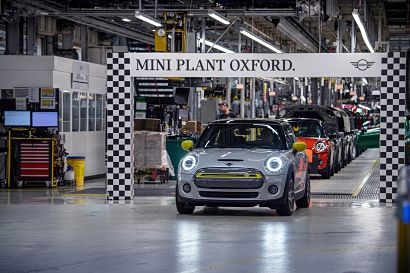
Premiered in July 2019, during the brand’s 60th anniversary year, Mini’s first all-electric model is now fully integrated into the production process at Oxford, running down the same line as the combustion engine models. Since its launch, more than 3,000 Mini Electric orders have been placed in the UK.
The Mini Electric is the second electrified Mini in the model line-up, joining the Mini Countryman Plug-In Hybrid. These two models have proved extremely popular in the UK and together account for 19 per cent of worldwide electrified Mini sales. A quarter of all UK Mini Countryman orders are for the plug-in hybrid version.
“We’re delighted the Mini Electric is such a success in the UK and that our customers love the car as much as we do” said David George, Director, Mini UK. “It’s fantastic to see the growing popularity of electrified vehicles – the UK already accounts for nearly a fifth of global Mini Electric and Mini Countryman Plug-In Hybrid sales and we know that demand is increasing.”
The high level of flexibility at Plant Oxford means Mini Electric production can be adjusted according to global demand.
The growth in popularity of electric vehicles means that next year, a third of Mini 3-Door Hatch models built at Plant Oxford is expected to be the fully-electric model.
The original Mini, designed by Sir Alec Issigonis in 1959, was born out of the Suez crisis oil shortage and the demand for affordable motoring.
Priced at £24,900 OTR (including Plug-in Car grant), the Mini Electric takes the brand’s trademark go-kart handling into a new era of electrified driving.
The Mini Electric is one of 13 electrified vehicles the BMW Group currently offers across its brand portfolio. This will be increased to a total of 25 electrified models on the road by the end of 2023, with more than half of those models fully electric. In Europe, the BMW Group expects that electrified vehicles will account for 25 per cent of sales by 2021, a third by 2025 and half by 2030. As announced earlier this week, as part of the company’s anchoring of sustainability at the heart of its corporate strategy, the goal is to have a total of more than seven million electrified BMW Group vehicles on the roads in ten years – around two thirds of them with a fully-electric drive train.
For additional information:

